Uncategorized
-
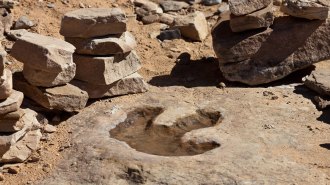 Paleontology
PaleontologyHow fast did dinosaurs really go? Birds walking in mud provide new clues
Tracks of dinosaur footprints can hint at how fast the extinct animals moved. Here’s how guinea fowl can help fact-check those assumptions.
-
 Space
SpaceThe biggest black hole smashup ever detected challenges physics theories
Gravitational waves spotted by LIGO reveal two black holes, 140 and 100 times the mass of the sun, merged to become a 225 solar mass behemoth.
-
 Space
SpaceA newly discovered interstellar object might predate the solar system
3I/ATLAS might be over 7 billion years old, a new study reports, which would make it the oldest comet known. But experts caution we need more data.
By Celina Zhao -
 Chemistry
ChemistryGut microbes may flush ‘forever chemicals’ from the body
Experiments in mice show that some gut bacteria can absorb toxic PFAS chemicals, allowing animals to expel them through feces.
-
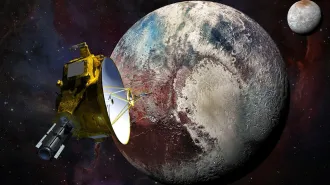 Planetary Science
Planetary ScienceNew Horizons visited Pluto 10 years ago. We’re still learning from it
Over the past decade, researchers have been puzzling through Pluto’s mysteries. Meanwhile, the New Horizons probe heads for interstellar space.
-
 Animals
AnimalsGreenland sled dog DNA is a window into the Arctic’s archaeological past
A genomic analysis of Greenland’s Qimmeq dogs suggest they and their human partners arrived on the island centuries earlier than previously thought.
By Jake Buehler -
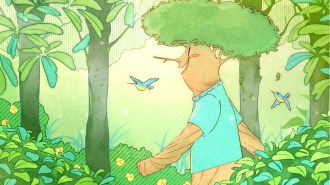 Climate
ClimateTrees can’t get up and walk away, but forests can
In fantasy worlds, trees like the Lord of the Rings’ Ents are agile and mobile. In the real world, they’re slow.
-
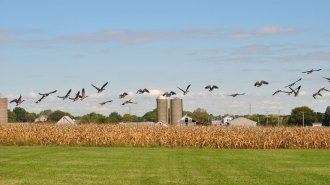 Animals
AnimalsAs bird flu evolves, keeping it out of farm flocks is getting harder
New versions of the H5N1 virus are increasingly adept at spreading. Suggestions to either let it rip in poultry or vaccinate the birds could backfire.
-
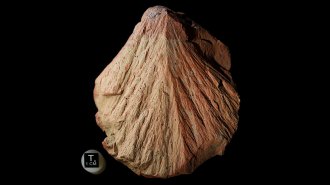 Earth
EarthAn ancient Earth impact could help in the search for Martian life
Strange cone-shaped rocks led scientists to the hidden remains of one of Earth’s oldest asteroid impacts. It could help us find fossil life on Mars.
By Douglas Fox -
 Oceans
OceansDeep-sea mining could start soon — before we understand its risks
The U.S. push to mine international waters for metals defies global efforts to control and protect these fragile ecosystems.
-
 Health & Medicine
Health & MedicineThese 5 nutrients might be lacking in your diet
U.S. diets should include more of vitamins D and E, fiber, calcium and magnesium — all are essential nutrients that could offer health benefits.
By Meghan Rosen -
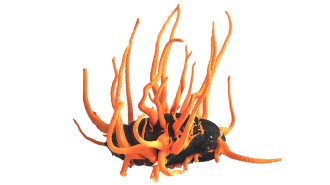 Life
LifeWhy these zombie caterpillars can’t stop eating
Sneaky chemistry by a real-life “Last of Us” Cordyceps fungus mind controls its zombie insect victims by convincing them they’re starving.
By Susan Milius